According to Darwinists, the ancestors of modern humans migrated out of Africa and colonized Asia and Europe. When North of Europe and Asia became ice free the Caucasus region was the route used. Immediately to the south of the Caucasus, the Euphrates and the Tigris have their sources.
According to Jews, Moslems and Christians this is where the garden of Eden was located and is the homeland of Abraham. Mount Ararat in the South Caucasus was the mountain where Noah's ark landed. This is the supposed homeland fatherland of the Indo-European Caucasians.
Vedic View:Atri is another of Brahma's sons. Atri's son was Soma or Candra (the demigod who governs the moon). Candra's son was Budha (not the one from the Buddhists), the king of the planet Mercury. one of Buddha's sons was Pururava. Then the descent goes through Ayu, then Nahusa and then Yayati. Yayati had five sons: Yadu gave rise to the Yadu-dynasty, in which Krishna and Balarama appeared; Puru gave rise to the Puru-dynasty in which Bhisma, Dhrtarastra, Arjuna, Yudhisthira, Bhima, Duryodhana and Maharaja Pariksit were born. Puru received the land of Egypt. Puru's son was Pravira. His son was Manasyu (yu = the uniter) also called Menes, who according to Western historians founded Egypt's first dynasty. The name Paurava's, Puru's descendants later degenerated to Pharaoh's. Yadu and the other sons of Yayati were subordinate to Puru.
Eventually, the Yadu clans who had settled in Egypt left Egypt where they were persecuted. Out of this clan came the Jews.Egypt is named after Ajapati, the son of the Aja clan. Aja was the grandfather of Lord Sri Ramacandra. Ramacandra is an expansion of Lord Sri Krishna. Sri Ramacandra appeared in the Surya-vamsa (family) of Vivasvan and Vivasvata Manu. Another name for Suryadeva is Ravi. Ra became the highest God, the father of this branch of the Surya-vamsa in Egypt. Their kings were Ramses, for them Rama-isa (Rama, the Lord) was God. Siva or (Maha)-isvara, the controller of the material world became Osiris.
Some members of the Pandava-family also came to Egypt and Europe, after Dvaraka, Krishna's residence, disappeared. The pyramids design was based on the smashana-cit-altars for the Vedic cremation rituals. The positions of the different parts of the building reflect the positions of the stars and the apex points to the devaloka's, the heavenly planets. They also moved to iswara (=God) laya (=land) or Israel. From the Essenes (worshippers of isa, Siva) came Jesus (= of Isa) Christus (= of Krishna). Yajati's three other rebellious sons received kingdoms outside of India. Yavana or Turvasu got Turkey, Persia etc.
According to the Mahabharata (Adi Parva 85.34) Turvasu fought for Duryodhana on the battlefield of Kuruksetra. Anu got Greek and Italy. Another migration of groups of people was started by Parasurama (also a descendant of Pururava) who displaced a branch of the Yadu's, the demonic Haihaya kings and their followers, who settled mainly in Egypt. They became kings there. Some came to Europe and Asia.About 4000BC Druhyu, the fifth son of Yayati, was banished to Europe. From Druhyu came the Druids, also connected with the Dravids, followers of the wise (=vid) man Drastha. Some barbarian tribes descended from him (more or less ksatriya's). They settled themselves in France and England. Around the same time the Saxenas, a demonic ksatriya clan, were banished from India. These were the Saxons who settled in Western-Europe. After the battle of Kuruksetra in 3138 B.C., the worldwide system of varnasramadharma, or the Vedic social-political system slowly degraded.
The Vedic culture was more or less present everywhere, but mainly in India. Civilized nations search for nice places like the tropics to settle. Patalabhumi (the hellish or low land), the western hemisphere, mainly the north, were avoided.Around 2000 B.C. different groups of Indian Indo-europeans went to the west. Also in the past groups went to the west to teach (like a group sharmans, brahmanical scholars, later called the Germans) and to reign (to establish the varnasramadharma-system). Or to emigrate because the river Sarasvati was dried up. Also some were banned because they had left the Vedic lifestyle. In 1103 B.C. the Trojans became the Sumeric Indo-europeans (because of the increasing desert because the river Saraswati dried up). In 800 B.C. the Kalatoya's came from the area to the south of Kashmir. These were the Kelts. In 2000 B.C. they left India when the river Saraswati dried up. In 1000 B.C. they arrived at the Danube (the river which flows through the land of the Danavas or demons). The people of Alinas (Hellenes) was one of the first groups to emigrate from India (to Greece).
According to the Mahabharata (Adiparva 174.38) Bhima and Sahadeva conquered the Pulinda's (Greeks) because they had given up dharma.The name Norway is derived from the Sanskrit naraka or hel. Soviet from sveta (white), Russia from rushis or rsi's, wise men who meditated there. Siberia from the Sanskrit word for inhospitable, camping site. Scandinavia from skandha, the commander in chief of the demigods. They navigated in the name of Skandha and worshipped Skandha. The words viking and king are from the sanskrit singh (lion). The Vikings were great white-haired daityas. The name 'Alps' is derived from alpa (small in comparison with the Himalaya's). At many places in Europe murti's (statues) of Krishna, Shiva (linga), Mitra (sungod) and so on have been found.
According to the purana's, the history-books of the Veda and the upapurana's (smaller purana's) around 11,000 B.C., there were floods, at the end of the glacial age. Thanks to their boat, Vaivasvata Manu (Noah) and his family, were virtually the only survivors. Following twelve great wars between the deva's (godly people) and the asura's (godless people), the land to the east of the Caucasus was given to the deva's and that to the west of the Caucasus was given to the asura's.Some asura's were (under Mayadanava, also a son of Kasyapa Muni - from Kasyapa's wife Danu) banished to South America, Patalabhumi/loka, or the land under (and to the opposite of) Punya-bhumi. There, Mayadanava is the engineer and the king of the Danava's. His fixed homelad is talatala-loka (1.088.000 km to the south of the Bhumandala) where the flying saucers are made. The maya's, the followers of Mayadanava, called their land Amaraka (amara = immortal, amrita=nectar). Asura's often think that death is something that will not happen to them and they think their mother land is paradise. Later Amerigo Vespucci could recover the name via his name America.
For more detailed information and discussion see the book Proof of Vedic Culture's Global Existence from Nandanandana dasa - Stephen Knapp).
"Athato Brahma-Jijnasa.. Now in this human form of life, inquire about the absolute truth". - Vedanta Sutra -
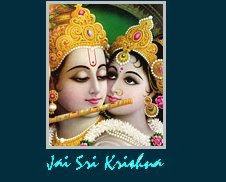
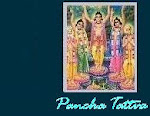
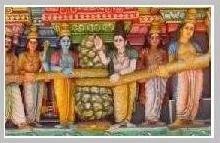
The demigods (suras) and demons (asuras) undertook the Churning of the milk-ocean to obtain the nectar of immortality.
Dhara Kaho He
Ruddha Habe Nai
**********************
The Divine Current
will never be Obstructed.
Ruddha Habe Nai
**********************
The Divine Current
will never be Obstructed.
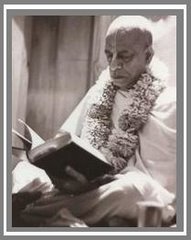
A.C. Bhaktivedanta Swami
Tools
Look Here:
- www.Dharmakshetra.com
- Vedic Treasure
- Figure of beauty
- Lives of the Saints
- Ohe Vaisnava
- Birds & Plants mentioned in Vaisnava Literature
- A Garland of Prayers
- Brahmaji appears in a flash
- A humble recipe link
- Flash and Slide ..Shows
- O Sri Vrindavan
- Radha Shyamsundar's Website
- Rasikananda's Syamananda Sataka
- Saranagati by Srila Bhaktivinode
- Sri Gadadharastakam
- Sri Gopal Tapani Upanishad
- Old Pages
- Puranic Time Measurements "Explained".
- Feast for the Eyes
- Ekadasi and Caturmasya Guidelines

SRIMAD-BHAGWATAM is mula-pramana, the original root of all Vedic evidence.

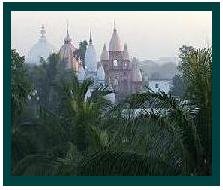
............... Divine Soil ...........

Blog Archive
-
▼
2007
(154)
-
▼
July
(26)
- Ancesters of modern humans
- Links Between Ancient India and the Mayans
- A question and an answer
- Stop Animal Killing
- Break her backbone
- Gopijana Ballavah
- Conch-shells
- Soul Travel
- Lassi (A Celestial Nectar)
- Sixty-one different ways
- Golden Cauliflower Pakoras
- Good Advice
- Gaudiya Literature
- The Glory of the Gita
- Bits & Pieces
- A Fool
- Brilliant as the Sun
- Have a Samosa
- Kali yuga
- The Great World War
- Maha Mantra tika (commentary )
- Peace of Mind
- Srila Bhaktivedanta Narayan Maharaj remembers
- From the heart
- Not charmed by formality
- The Human Body
-
▼
July
(26)


Gopijana ballavah..Kunjabi Hari


The Bhagavad Gita manifested 3137 BC at Kurukshetra, India


The four legs of the Holy bull ( Dharma ) represent austerity, cleanliness, mercy and truthfulness.


Prasadam (mode of goodness foodstuffs, prepared and offered to Krsna with love and devotion)

Hearing the Karatals resound, and the Mrdangas playing sweetly, everyone will feel great satisfaction

Simply by seeing, touching, remembering, praying to, bowing before, hearing about or simply by sowing this tree, there is always auspiciousness.
